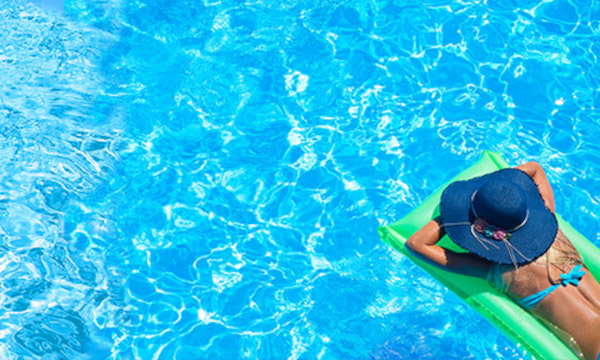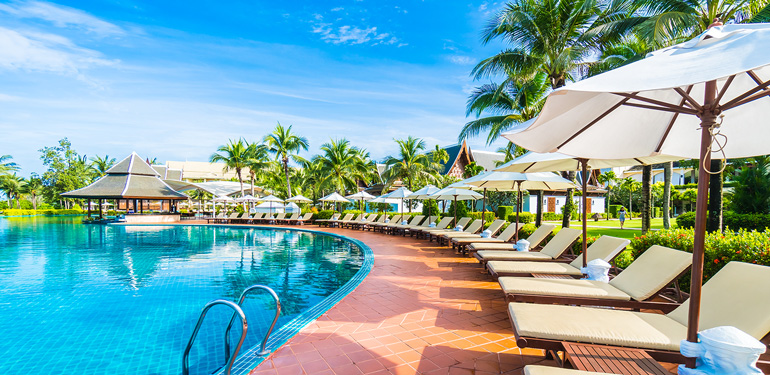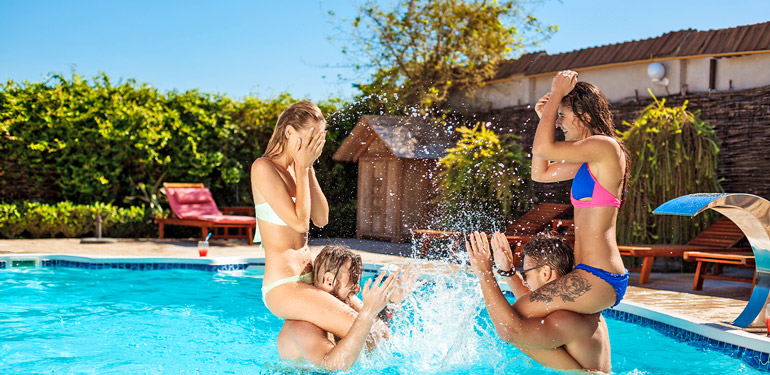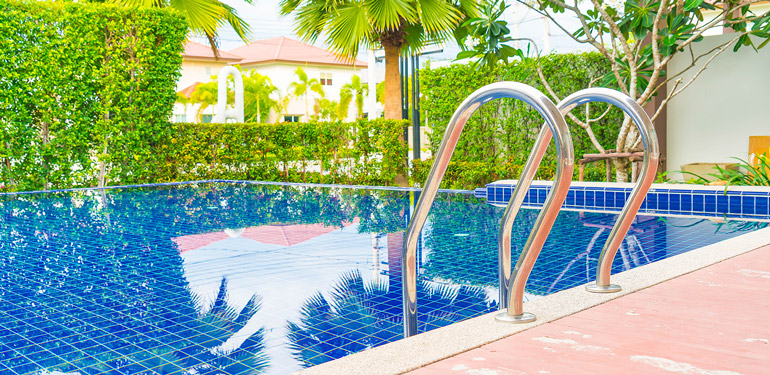Swimming Pools: Private, Public, and Are They Really Necessary?

Is it time to finally figure out whether a swimming pool in Spain is necessary or not? Is it better to have your own, or can you make do with a shared one? What are the advantages and disadvantages of owning a private pool? Finally, we will reveal the mystery of the "sea water pool" - is it any good and does it even exist?
Let's start by dreaming: you've decided to buy property in Spain (as we previously wrote about 5 reasons for purchasing property in Spain).
Spain is synonymous with sun, sea, and celebration. Hot summers are always associated with swimming, bathing, and water activities. Therefore, one of the parameters in choosing property in Spain is a swimming pool. It's understandable to want to buy an apartment in Spain as close to the sea as possible, preferably on the first line, so you step out of the house and are already on the beach. Then, it seems, a pool is not needed at all. However, swimming in the sea and in a pool, as they say, is quite different.
On average in Spain, the cost of apartments and houses with pools is 40% higher than for those without. Since the climate in Spain is mostly hot, and not everywhere has access to the sea, pools are quite common, with 19% of all real estate listings featuring pools. Meanwhile, the province of Alicante leads in offering this amenity - 32.3% of all real estate objects with pools, even though the sea is just a stone's throw away. In the neighboring region of Murcia, the climate is even hotter, there's no sea coast at all, but pools are less common. By the way, if the land plot near the house allows, a pool can be built starting from 9000 euros.
So, is it necessary or not?
Dreaming about your own pool, your imagination always paints attractive pictures - summer, sun, happy children jumping into the pool, cocktails, ladies in wide-brimmed hats on loungers, pool parties or, conversely, peaceful enjoyment of carefree life alone or with a close circle of loved ones.
If you can afford a separate house or townhouse with a private pool, it will most likely be located some distance from the sea and definitely not in the city center. However, you will have the amazing opportunity to use the pool 24/7 all year round in any way and condition. True, the maintenance costs will also be entirely on you.

How much does pool maintenance cost and what needs to be done, can you handle it yourself? Let's say your pool is built and fully ready for operation. What's next?
Firstly, the pool needs to be filled with water. The number of liters in the pool is calculated simply - multiply the length, width, and depth, and get the volume in cubic meters. If the pool is round, a coefficient of 0.785 is applied; for an oval pool, the coefficient is 0.89. In addition, water constantly evaporates from the pool surface and needs to be topped up to the recommended level every day in summer.
Secondly, basic mechanical cleaning of the pool walls and bottom, as well as cleaning the filtering system and skimmers. This is done as needed, but even if the pool is not used, no less than once a week, as dust, leaves, and insects constantly fall into the water. You will need a set of various brushes, scrapers, and a water vacuum cleaner.
Thirdly, to maintain cleanliness, transparency, and water safety, it is necessary to monitor and adjust its chemical composition, the pH value of the pool water. The ideal pH level is between 4.2 and 7.8. If the value is higher or lower, the pool water can negatively affect the skin and hair, reduce the effectiveness of filtration and the lifespan of the pool. Special devices are used for measurement, depending on their readings, various chemicals are added to the water.

There are two main types of pools: with chlorine and with salt.
By the way, the widespread myth about sea water pools is a marketing fiction, especially popular among those selling new properties in Spain. The logic is simple - add salt to the pool, the water becomes salty, seawater is salty, so the pool becomes a sea water pool. But these salts have nothing in common with sea salt, the water does not become salty to the taste and does not acquire beneficial sea properties. The use of salt does not even exclude the use of chlorine, yes, less chlorine is used, but it is still necessary. Moreover, using salts is unsafe if there are metal elements in the pool, as there is a risk of corroding the metal components of the pool structure.
So, if you see an advertisement for real estate in Spain with the option of a "sea water pool" - it's not the same as swimming in the sea, just a salt reservoir for electrolysis is added to the filtration system.
With regular maintenance of a saltwater pool, it is necessary to check the pH level and free chlorine every week, the salt level every month, and the salt cell every three months. Due to salt corrosion, pumps, filters, lighting require more frequent replacement than in chlorine pools.
Therefore, for your pool, there should be at least one more very important person or a team of professionals responsible for its maintenance, equipped with special tools and instruments, and also purchasing chlorine and salts in the necessary quantities.
Here’s what it costs: cleaning from 8 euros per hour or 2 euros per sq.m, startup and inspection 125-350 euros.

Accordingly, if you live in an apartment building, the expenses for maintaining the pool will be shared by everyone. Depending on the size of the pool and the number of apartments in the building, the payments can amount to 300 euros per year. If the size of the pool exceeds 200 sq. m, then your community should hire a lifeguard who will be on duty all the time when the pool is open. Such pools are usually only available for use in the summer season, although the water may not be drained and cleanliness and order are maintained year-round.
Often in such cases, the pool has additional fencing, and access to the pool is made with special cards. Even if you have direct access to the pool, this doesn't mean you can use it whenever and however you want. Usage rules are set at the annual general meeting of residents, and you, as an apartment owner, can propose changes. If most people like your proposal – great, if not – try again at the next meeting. Usually, the rules include operating hours, require the use of swimsuits and trunks, prohibit bringing food, coming with animals, and leaving children at the pool unattended.
The Personal Data Protection Law in Spain prohibits photo and video recording of people, especially children, let alone publishing, so be careful when boasting on social networks about your swimming and diving achievements, to avoid accidentally violating someone's rights to confidentiality. In general, you can only hope for solitude and tranquility in the off-season if it's a shared pool. With the beginning of school holidays and vacations, noise, splashes, and shouts at the pool only subside when it closes.
Children adore any pools, they easily make friends and organize games, paying no attention to the language barrier. So, in a communal pool, it’s even more interesting for them.
An undeniable plus of the pool, of course, is that on a hot summer day, you can dive into the cool water at any moment without any preparations for the beach and the trip to the sea. If you are a fan of Spanish cuisine and cannot deny yourself an extra portion of paella or a bocadillo with cheese or ham, don’t worry. Water activity is a great way to burn extra calories, 15 minutes of swimming in the pool and you'll be back in great shape and ready for new tastings.
No matter what conclusion you have drawn about the pool, on our website, you will find real estate to suit any taste. Ask us questions to be sure about what you are planning to buy and not to fall for the tricks of cunning marketers. A sea-water pool, imagine that!
